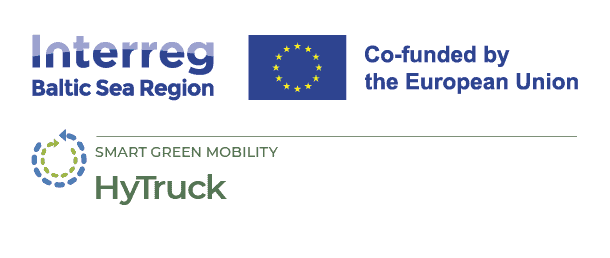
Standardisation and innovation are driving hydrogen-based technologies
02 October 2024
The first speaker, Paweł Piotrowicz from TÜV SÜD Polska Sp. z o.o., introduced into HRS standardization and unification. TÜV SÜD is a company with German origin, today comprising more than 1 000 locations and almost 28 000 experts globally. The core business is testing, inspection and certification.
To avoid a multitude of company specific standards, as for plug connector during the rollout of electrical vehicles, standardisation of technical solutions for HRS re-fuelling has been addressed timely.
ISO 17268 and ISO 19880-8 were identified as exceptionally important standards. However, standards need to keep up with the rapid technology development without compromising safety issues.
Although lots of standards have been introduced on a voluntary basis, Mr. Piotrowicz strongly recommends to apply design review, hazard and operability analysis, compliance review before commissioning, preparation of guidelines, refuelling protocol, review operation and maintenance plan and certification during planning, testing and commissioning process.
It was also brought up that EU regulation RED III and AFIR have a great impact on HRS development, and these directives act as the main drivers for HRS ramp-up in Europe.
High quality standardization is needed to increase safety, unification and cost minimization.
As second speaker, Marcin Orlikowski from IMPACT Clean Power Technology presented heavy duty fuel cell power pack with enhanced lifetime. During the presentation, Toshiba low pressure fuel cell was introduced and its technical parameters described. When compared to more traditional high-pressure fuel cells, low-pressure fuel cells have some advantages like simplified design, efficient cooling and stable long-term full power operation. The low-pressure fuel cell operates in overpressures of 10-20 kPa, making compressors and humidifiers unnecessary, which leads to more simple and robust unit design. These fuel cells also suffer only minimal voltage drop of 3% during long operation periods. To extract water formed in the oxidation process of hydrogen from the cells, porous bipolar plates are used to avoid the need of an external humidifier unit.
Low-pressure fuel cells can achieve a lifetime of 80 000 hours, compared to the average fuel cell lifetime of 10 000 hours. Typical applications are in marine transport, rail traffic, heavy duty trucks and energy storage systems. The propotype is about to be tested in real-life applications.





